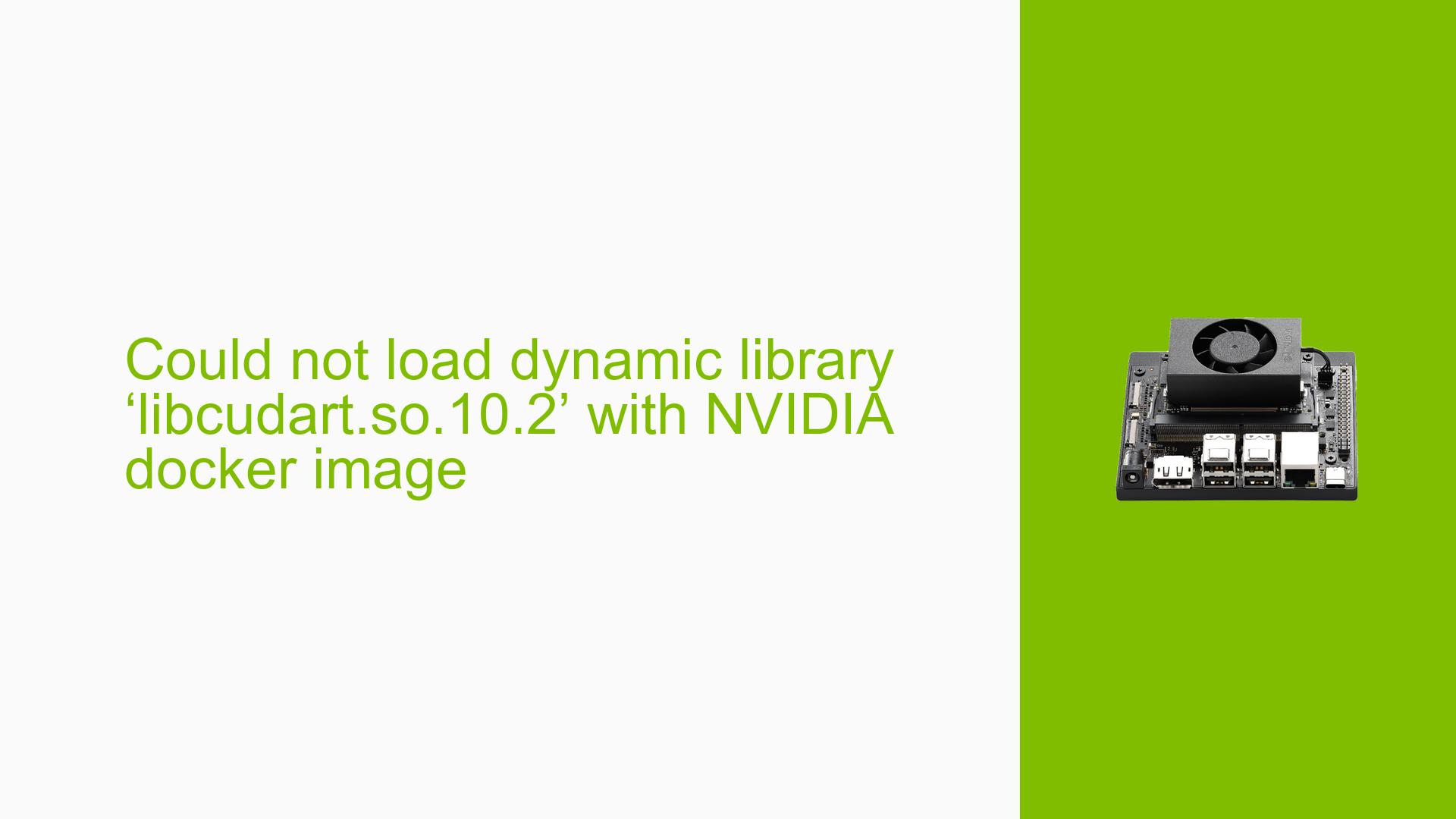Could not load dynamic library ‘libcudart.so.10.2’ with NVIDIA docker image
Issue Overview
Users of the Nvidia Jetson Orin Nano Dev board are encountering an error when attempting to run a Docker image that utilizes TensorFlow. The specific error message states:
Could not load dynamic library ‘libcudart.so.10.2’; dlerror: libcudart.so.10.2: cannot open shared object file: No such file or directory; LD_LIBRARY_PATH: /usr/local/cuda/lib64:/usr/local/cuda/bin/nvcc
This issue arises during the execution of TensorFlow after importing the library in Python 3, specifically when using the Docker image l4t-tensorflow:r32.7.1-tf2.7-py3 with JetPack version 4.6.1 (L4T R32.7.1). The problem is consistent and prevents users from leveraging TensorFlow functionalities that require CUDA support, significantly impacting their development and testing workflows.
The context of this problem indicates that it occurs during the setup phase of running machine learning models within a Docker container, suggesting a potential incompatibility between the JetPack version and the Docker image being used.
Possible Causes
-
Incompatibility between JetPack versions: The Docker image in use is designed for JetPack 4.6.x but may not be compatible with JetPack 5 or later versions, leading to missing libraries.
-
Missing CUDA libraries: The specific error indicates that the
libcudart.so.10.2library is not found in the expected directories, which could be due to an incomplete installation or an incorrect version of CUDA being referenced. -
Configuration errors: The environment variable
LD_LIBRARY_PATHmight not be correctly set to include the paths where CUDA libraries are located, causing the system to fail to locatelibcudart.so.10.2. -
Docker image issues: The Docker image itself may have been built incorrectly or may not contain all necessary dependencies for running TensorFlow with CUDA support.
Troubleshooting Steps, Solutions & Fixes
-
Verify JetPack Version:
- Ensure that you are using a compatible JetPack version with your Docker image.
- If using JetPack 5, switch to a Docker image that supports it (e.g., L4T R35 images).
-
Check CUDA Installation:
- Confirm that CUDA is installed correctly on your system.
- Run the following command to check installed CUDA versions:
nvcc --version
-
Inspect LD_LIBRARY_PATH:
- Check if
LD_LIBRARY_PATHincludes paths to your CUDA libraries:echo $LD_LIBRARY_PATH - If necessary, update it by adding the correct paths:
export LD_LIBRARY_PATH=/usr/local/cuda/lib64:$LD_LIBRARY_PATH
- Check if
-
Run an Alternative TensorFlow Image:
- If issues persist, consider using an alternative TensorFlow Docker image that is confirmed to work with your current JetPack version.
- For example, pull an L4T R35 TensorFlow image:
docker pull nvcr.io/nvidia/l4t-tensorflow:r35.1.0-py3
-
Rebuild Docker Image:
- If you have custom modifications, ensure you rebuild your Docker image after verifying all dependencies are included.
-
Consult Documentation and Community Resources:
- Review Nvidia’s documentation for any updates regarding compatibility between JetPack and TensorFlow images.
- Search through forums for similar issues and resolutions shared by other users.
-
Testing Environment Setup:
- Consider creating a new environment or container specifically for testing different configurations without affecting your main setup.
-
Unresolved Issues:
- Users may still face challenges if they have unique setups or configurations that differ from standard practices.
- Further investigation may be needed for specific hardware setups or additional software dependencies not covered in general troubleshooting steps.
By following these steps, users should be able to diagnose and resolve the issue related to loading the dynamic library libcudart.so.10.2 when using NVIDIA’s Docker images on the Jetson Orin Nano Dev board effectively.
